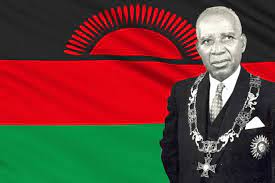United Nations, US election 2016 reveal deep gender divides

Progress doesn’t follow a straight line. It zigs and zags, and sometimes it moves forward and sometimes it moves backwards or moves sideways. I am a firm believer that ultimately it moves in the direction of justice, and more prosperity, and more freedom, and more inclusion. — Barack Obama, US President, November, 2016
As the world’s undivided attention focused keenly on one unfolding bizarre incident after another during the US 2016 elections, the United Nations elected its ninth Secretary-General on October 16, 2016. Like the US elections, despite having very able and capable women that were in the race for this highest global office with a record seven women contenders to six men, the UN also elected a man, HE Mr. Antonio Guterres, former Prime Minister of Portugal.
If one takes two steps back to get the full picture of what just happened in these two giant global institutions, it does not take rocket science knowledge to see the inherent and very deep ravine between the de jure and de facto of the ideals for which they stand. The US and the UN are two of the world’s greatest champions and upholders of gender equality, transparency, human rights, accountability, one-person-one-vote, and all the other democratic pillars as the world has come to know them; as has been translated by these two giant referees of these noble democratic ideals.
The United Nations and the United States 2016 elections this year unapologetically gave the big snub to women contenders and therefore gender equality, showing yet again that this is still a man’s world after all.
In the case of the UN from who the entire world (comprised of 193-member state — countries totaling 7 billion people) maneuvered around from obstinate oligarchy, behind the scenes all-boy network tinkering to downright ridiculousness. Obstinate because the big P-Five (US, UK, Russia, China and France who make up the permanent members of the Security Council) still weld power over who gets the final nod and nudge into the chair of the most powerful man next to president of the United States. Hence while the all-powerful General Assembly, complete with its one-country-one-vote structure and a sometime open and sometime secret ballot means of endorsing a candidate, we must ask again for uniformity in the selection process and voting structure and bring clarity by reducing the complications in the election picture. Maybe the system should just flush out the right to vote and simply just bring in an SG of the choice of the power nations.
With 13 contenders (two later dropped out, leaving 11), the voting structure was through the straw draw. At every round, in the lengthy election process, the system seemed to be weighed down by the behind the scenes meandering; this IS in the age of electronics and supersonic technology, but did someone really say it was a straw draw that gets one points for this high position?
That is correct. The straw draw got HE Guterres – a credibly able and notable statesman — elected United Nations Secretary General; he is the new de facto leader and spokesperson of the whole world. All seven billion of us. No jokes. The straw drew did the trick.
Historically the post was selected by the Security Council and endorsed by the General Assembly, however power politics of the non-aligned movement, moved from the SC-centered monopolization of who holds the forte; the NAM also paved the way for rotation and regional representation and other regions such as Africa, Asia and Latin Americans have had the opportunity to hold the reigns of global power. The only region not in the picture appears to be Eastern Europe.
Women’s inability to gain access to this posh global post may be due to the absence of a similar global tour de force such as the NAM to give the necessary push. However, is this necessary when the institution is guided by the globally, universally accepted Declaration on Human Rights that guarantees all (male and female, black or white, yellow or brown and of whatever nationality inalienable rights and freedoms and guarantees of equal, fair and justice and all the other democratic blah blah blahs?
The rules and regulations guiding the election process are as varied and have gone numerous changes through the years since the UN was birthed. Surely a tinkering here and there can be done as well to pave the way for a woman SG.
As for the 2016 US elections, the process is flawless, impeccable and precise. In its 240 years, the US — the goal keepers, champions, scorecard watchdogs of anything to do with democracy and equal rights — is limping in the corridors of human rights and equality between women and men. Over 70 countries have had women elected to be leaders of their countries. These include Russia, India, Chile, Ireland, Israel, UK, Pakistan, Liberia, Malawi and many others.
The failure of the US electorate to elect its first woman president (who got to within inches – she in fact won the popular vote) puts the USA in the awkward position whereby countries around the world will be citing its treatment of its first female nominee of a major political party as the new standard on treatment of women political rivals. On which platform, will the US stand on women’s issues when the 2016 election cycle brought one jaw-dropper after another in the “treatment of women department”?
While anti-women and misogyny issues are just a few of the concerns that will be discussed for years to come, the fact that Hillary Clinton was dealt with ruthlessly is perhaps an indication of the way women globally should be on the look-out. We pray not!




